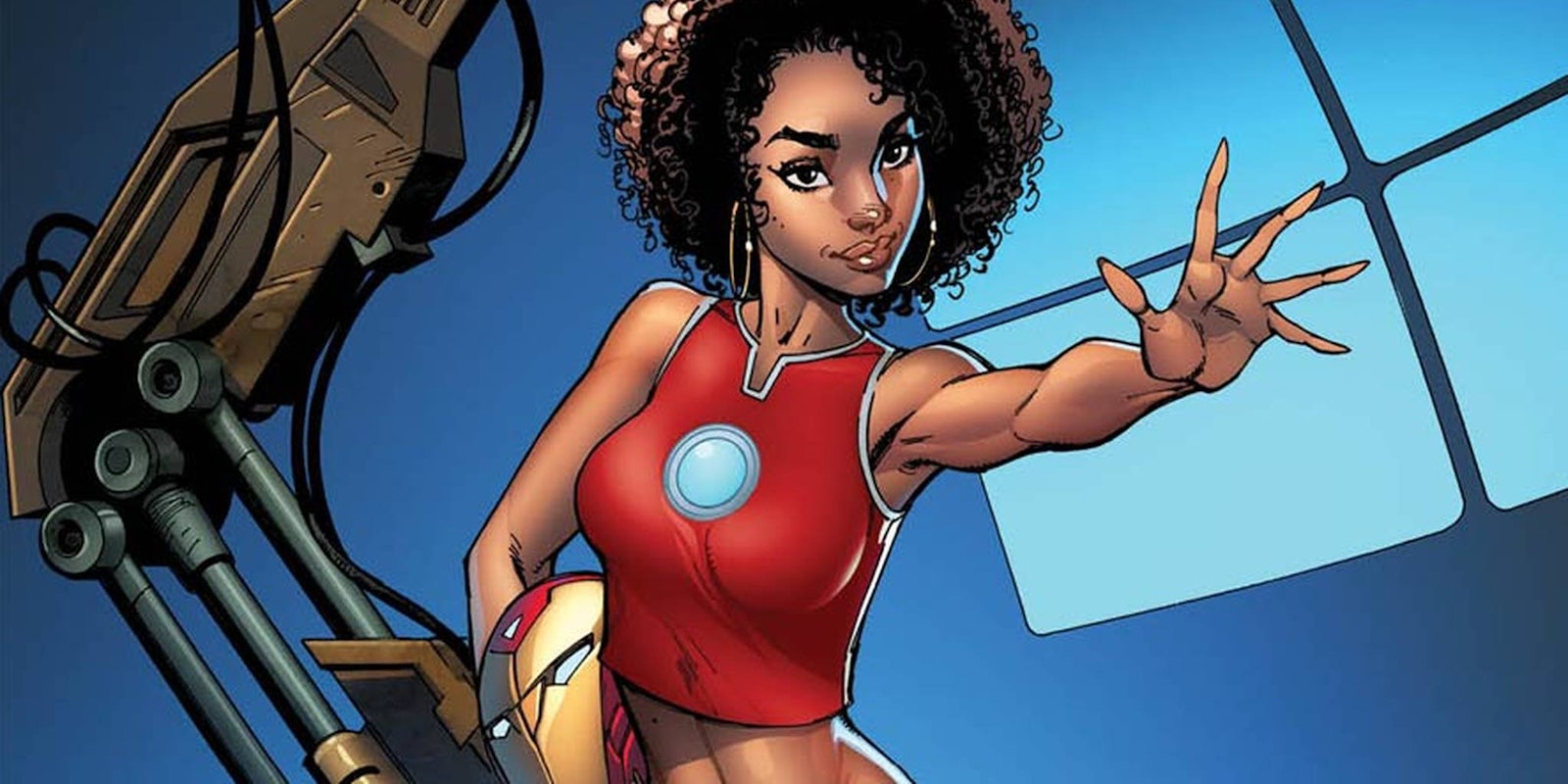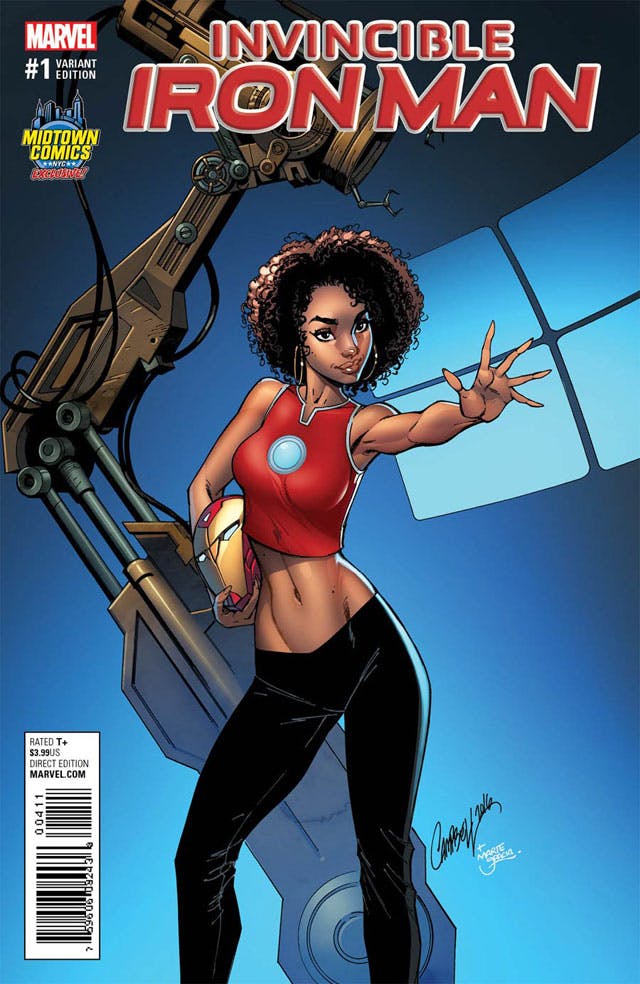Opinion
Riri Williams is the latest of several high-profile reboots for classic Marvel heroes, starring in the new comic Invincible Iron Man. After building her own suit of robotic armor, the 15-year-old MIT student adopts the superhero name Ironheart, supported by the original Iron Man, Tony Stark.
Fans were excited about this development, with one caveat: Riri’s character design. There was already some criticism of her portrayal on her introductory cover, but things really came to a head this week, with J. Scott Campbell’s variant cover for Invincible Iron Man #1.
The cover was immediately criticized as an unrealistic and sexualized depiction of a 15-year-old, an opinion that artist J. Scott Campbell characterized as “SJW” (social justice warrior) “whining,” in a tweet to writer/artist Erik Larsen. Later, he tweeted that all he did was give Riri a “sassy attitude” on the variant cover.
https://twitter.com/ErikJLarsen/status/788796273457369088
Ha! Nope, nope. Sitting this SJW whine-fest out. Not taking their bait this round ;)
— J. Scott Campbell♠️🎨 (@JScottCampbell) October 19, 2016
Larsen’s argument, that fans are “bodyshaming” Riri by criticizing Campbell’s art, doesn’t really make sense. They’re not belittling the body or fashion choices of a real person, they’re discussing the portrayal of a fictional girl, drawn by a man.
The Riri art controversy ties into several overlapping issues, beginning with the ongoing problem of inappropriately sexualized images of women and girls in superhero comics. Along with criticisms of Riri’s pose and anatomy, some fans say her outfit is unrealistic for a teen in 2016. Basically, a lot of artists are still drawing a trend for crop tops and low-rise pants that went out of style in 2003, following a style of pinup art from the late ’90s and early 2000s.
you wouldn’t draw the majority of your charactes with flip phones, so for the love of god stop drawing them in low-rise flares
— Claire Hummel (@shoomlah) October 19, 2016
Once the Invincible Iron Man cover spread among comics fans, Twitter user MizCaramelVixen encouraged people to share depictions of #TeensThatLookLikeTeens, providing a contrast to Campbell’s art.
https://twitter.com/oheysteenz/status/788845057075884032
In addition to the issue of sexualizing an underage character, Riri’s mature appearance—both in the variant cover and the original—plays into the idea that white people see black children as older than they actually are. This has serious, real-world consequences, and brings us to the matter of Invincible Iron Man‘s creative team.
Like Invincible Iron Man‘s writer and lead artist, J. Scott Campbell is a white man, making Riri Williams another casualty Marvel’s ongoing struggle to hire women and people of color in creative roles.
With characters like Riri, Kamala Khan, and Miles Morales, Marvel revitalized its lineup of top-tier superheroes. But while these characters make headlines and attract new readers, fans and industry professionals often criticize the publisher for failing to hire a similarly diverse creative staff. (Khan is a notable exception, with Muslim American writer G. Willow Wilson and editor Sana Amanat behind the popular Ms. Marvel comics.) If a comic like Invincible Iron Man has an all-white, all-male creative team, it may miss certain cultural nuances that readers find tone-deaf or offensive—which is exactly what happened here.
In response to the controversy, Campbell defended his variant cover by retweeting support and compliments from fans, and pointing out that Riri’s outfit corresponds with her original character design.
Thank you..?! 😕 RT @andypybruh: @rzochoa This is very tame for Campbell. Maybe he knew. I mean, her ass isn’t in our faces. that’s a plus!
— J. Scott Campbell♠️🎨 (@JScottCampbell) October 19, 2016
I gave her a sassy “attitude”@lilpochaco “sexualizing” was not intended. This reaction is odd. The crop-top was in the existing design.
— J. Scott Campbell♠️🎨 (@JScottCampbell) October 20, 2016
Marvel has heavily promoted Riri Williams as part of an effort to diversify its pool of high-profile characters and expand its audience. Unfortunately, this variant cover controversy is exactly the kind of thing that inspires distrust among the very readers who want to see more characters like Riri on the page.
Update 3:59pm CT: Marvel representatives confirmed to HitFix that it and Midtown Comics made the joint decision to cancel the controversial variant cover.



